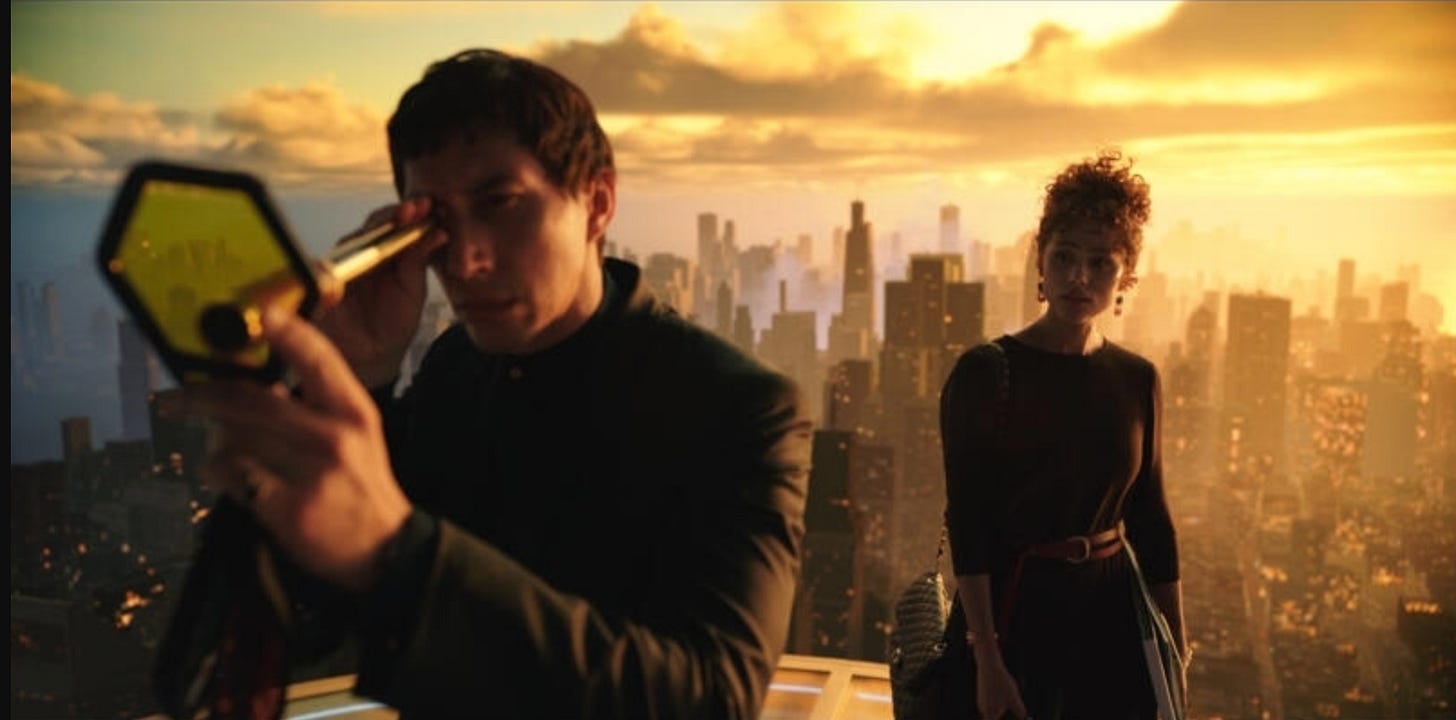‘Megalopolis’ is every bit as insane as you’ve heard
Francis Ford Coppola’s long-gestating personal projects are weird, meandering, and often make little sense. But I’m still glad it exists.
With Megalopolis, 85-year-old Francis Ford Coppola has returned to big-budget filmmaking with a decades-in-the-works, self-financed auteur passion project, seemingly unencumbered by creative or corporate limitations.
Does most of it work? Absolutely not. The film is a huge mess, with a million different things going on, actors delivering performances that don’t mesh, and big and bold ideas about the future of humanity sitting uneasily with unapologetic silliness. I laughed at many things I probably wasn’t supposed to laugh at, And the ending is pretty much at odds with the tone of the rest of the film. This film will float over the heads of most people who see it, and not very many people will see it.
That said, I’m very glad Megalopolis exists. I was baffled while watching it but haven’t stopped thinking about it since. It seems inevitable that it will be re-appraised and reconsidered 10 to 15 years later. Perhaps Coppola, once he reaches his 90s, will tinker and put out a director’s cut that everyone likes a lot more.
Richard Kelly’s Southland Tales is the closest film I can think of to Megalopolis, from its themes to how it’s been received to the constant literary quotations. Although I admit, I loved Southland Tales from the beginning.
Don’t we want great filmmakers to take big and risky swings? Risking it all for an expensive, high-profile project that threatens to bankrupt him is something most of today’s filmmakers would never consider, but Coppola has done exactly that four or five times in the last 40 years, so why not do it one more time at the end?
Megalopolis is set in a New York City-like metropolis known as New Rome, in case you doubted the subtlety of the central metaphor (the other — brilliant but misunderstood inventor as a stand-in for the filmmaker — is even less subtle than that.)
The plot of the film is mainly constructed around a bitter war of wills between Cicero (Giancarlo Esposito), the city’s mayor, and Cesar Catilina (Adam Driver), a Robert Moses type who is seeking to remake the city even though he’s not part of the elected government.
Some hybrid of architect, scientist, and inventor, Cesar also has the ability to stop and restart time and access a seemingly magical material called Megalon, which can generate building material seemingly magically.
Complicating matters is when Cesar, whose wife died years earlier under mysterious circumstances, falls in love with his enemy’s daughter (Nathalie Emmanuel), who doubles as his muse.
The film toggles back and forth between these big debates about the direction humanity will take and silly digressions, many of which remain unresolved. For one thing, there’s a subplot about an old Soviet satellite that threatens to fall to Earth. Then it does, but it ends up having no impact on the plot whatsoever.
Neither Driver or Esposito does anything close to the best work I’ve seen from them, although Voight has some fun with the role, and Emmanuel (Missandei from Game of Thrones) shows serious star potential.
Aubrey Plaza all but steals the film as Wow Platinum, a social-climbing financial reporter, likely based on CNBC-era Maria Bartiromo, albeit a version of Maria who took an even stranger turn than the real Maria’s late-career Trump sycophancy. Hamilton Crassus III (Jon Voight) is an elderly banker and Wow’s latest target, while Dustin Hoffman (looking pretty rough after a multiyear #MeToo exile) plays a Jewish gangster named “Nush Berman.”
Speaking of men accused of bad things, Shia LaBeouf plays Clodio Pulcher, the scheming, frequently costumed cousin of Cesar; his performance reminded me of Jared Leto’s in House of Gucci, in that it’s not exactly good or bad acting, but rather a strange, third thing.
The director’s sister (Talia Shire) and nephew (Jason Schwartzman) also hang around in small roles, although SNL’s Chloe Fineman shows some movie star potential in a few scenes.
The film looks fantastic, and some of the set pieces are inspired, especially the one depicting a circus-style wedding and an early “debate” between the rivals in which Driver lapses into Hamlet’s soliloquy for some reason.
After Coppola’s years of trying to put the film together, a reportedly troubled production, the bad early industry screening, a baffled reception at Cannes, its difficulty getting a distributor, and that fake-critic-quotes controversy, I wasn’t sure Megalopolis was really, truly, going to reach the screen until I finally saw it Monday night. For all it has wrong with it, I’m glad it’s there.




You remembered far more visuals than I did. It's so much spectacle, I can't remember all I witnessed.
This just looks like something I’ll see in twenty years, kind of like my “delayed” viewing of Heaven’s Gate. But thanks for the review, and I’m also glad to see that a big budget, non-sequel (which won’t be “franchised”) can still exist!